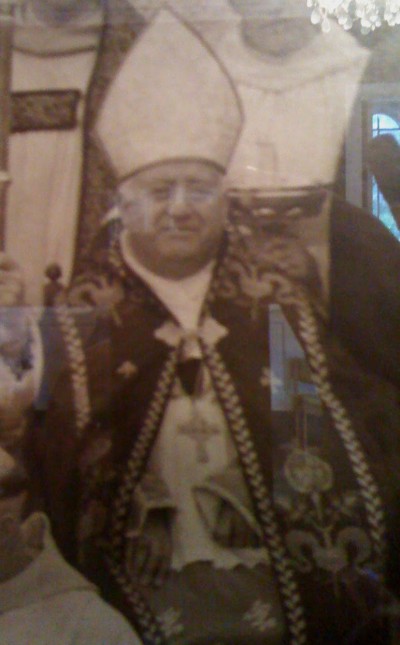Blessed Columba Marmion on Humility and Confidence
A Secondary Patron of Our Monastery
Along with St. Thérèse and several others Saints, Blessed Columba Marmion (1858-1923) is a secondary patron of our monastery — the Blessed Virgin Mary under the title of Our Lady of the Cenacle is the primary patron, since we spend our lives doing what she did during the nine days in the Cenacle when she prayed with the first priests, the Apostles, for the descent of the Holy Spirit.
Bd Columba Marmion did not die on the 3rd of October — he died on the 30th of January — but in many places today is celebrated as the feast of Bd Columba Marmion because it was the day on which he received the abbatial blessing in 1909.
Marmion’s doctrine is luminous, though deceptively simple. He stays so close to the St. Paul and the traditional doctrine of the Church (drawing especially from St Thomas Aquinas) that the very familiarity of the words can sometimes make the profundity of his doctrine a bit startling. Sometimes one might catch himself reading words he has read a thousand times previously, only to discover a meaning behind them he had not previously considered.
Cenacle Press has published new editions of Christ, the Ideal of the Monk (which is certainly not only for monks!), and Christ in His Mysteries, which makes luminous the Church’s cycle of feasts, as well as Words of Life on the Margin of the Missal, which is a collection of short texts for Bd Columba Marmion for each day of the year. We also published a collection of essays in honour of Blessed Columba Marmion entitled Beloved of God and Men.
A Letter of Blessed Columba Marmion
In honour of our patron’s feast, we present a letter from the English Letters of Abbot Marmion, originally published in 1962. There is a new edition of it from Angelico.
From the English Letters of Bd Columba Marmion
TO AN UNKNOWN CORRESPONDENT
✠
PaxAbbaye de St Benoit, Maredsous,
Sept. 11, 1897
My dear Child,
Your letter was a joy for me; for I see that despite your unworthiness, God is guiding you, and is full of mercy and love in your regard.
God is Your Guide so Long as Pride Does not Stand in the Way
Your great object ought to be, to become very humble. This is the sure road to God’s love; for He is so powerful that He can change even our corruption into the pure gold of His love, if He finds no obstacle in pride. Believe me, my dear child, if you are sincerely humble, God will do the rest.
A Method to Grow in Humility
To become humble, a practice I have may aid you: it is to make three stations every day.
- 1st station: Consider what you were.
If you have once sinned mortally in your life, you have merited to be cursed for all Eternity by Him Who is Infinite truth and Infinite goodness. And that curse would have brought with it, separation forever from God; eternal hatred for God, and for all that is good, just and beautiful; and to be trampled for all Eternity beneath the feet of the demons. And this punishment would have been just, and have been pronounced by Him Who is Goodness itself. Oh, my dear child, we have perhaps merited all this; and if we be not there now, it is an effect of God’s infinite mercy, and of the sufferings of Jesus Christ Can anything be bad enough for us? can anyone do us injury in despising us?- 2nd station: What we are.
It is of faith that we are incapable of a good thought without God, “without me you can do nothing”; that is, we cannot make one step towards God without Him. Then our daily infidelities, our sins, our ingratitude, our best actions are very miserable indeed.- 3rd station: What we may become.
If God takes away His hand from us, we are perfectly capable of becoming what we were before, and worse. God sees this. He knows what depths of treachery we are capable of.How can we be proud?
Humility Gives Rise to Confidence
But after these stations, we must never forget another, and it is this: we are infinitely rich in Jesus Christ, and God’s mercies are to our miseries what the ocean is to a drop of water.
We never glorify God more than when we, despite the sight of our sins and unworthiness, are so filled with confidence in His mercy and in the infinite merits of Jesus Christ, that we throw ourselves in His bosom, full of confidence and love, sure that He cannot repell us: “a humble and contrite heart, oh God, Thou wilt not despise.”

